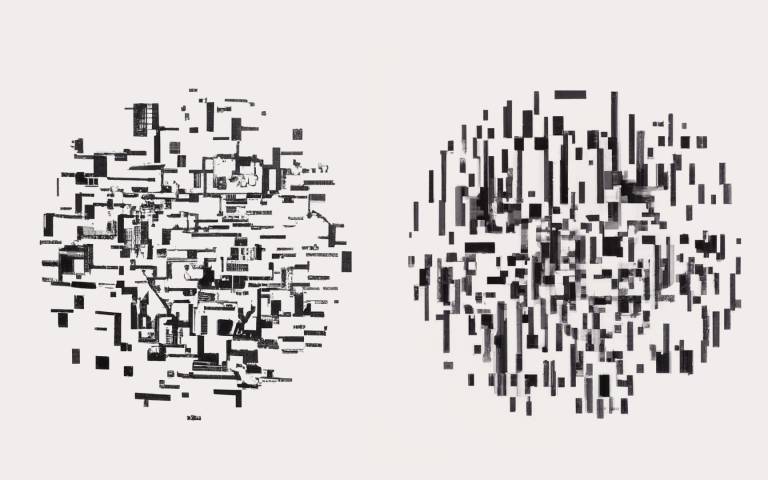 Research
Research

Flattening Authorship: Digital Computation and the Rise of the Audience
First and second supervisors
Abstract
From its mid-century influence on popular culture and information theory, catalysed by the emergence of the Internet, digital computation has transformed the hierarchical relationship between authors and audiences. This research will provide new criteria for authorship by re-situating it within a recent history of computation, to develop literacy and expectations of authenticity in new media, architecture, and design.
This research identifies and analyses pre-digital, multidisciplinary determinants of authorship, and explores the challenges revealed when attempting to apply these criteria to contemporary media and methods of production, including forms of generative machine learning (e.g., Large Language Models, GANs, diffusion models), blockchain technologies, copyright, and bidirectional platforms that enable audiences to become authors. Through this process, this exploration will examine co-authorship, synthetic images and data, and biases therein.
Re-evaluating authorship is urgently essential, as digital images abound, truth in media is increasingly contentious, and myriad new, generative AI are made readily available to any Internet user. This research is critically interdisciplinary—while based in Architecture and Digital Theory—analysing texts and physical works in Art History, Music, Literature, Law, and Computer Science to develop criteria that are adaptable and format-agnostic, for emerging applications whose wider implications have yet to be revealed.
This research will establish the concept of “flat authorship.” The outcome of flatness is a deterioration of the truth and authentication systems culturally established by a historical hierarchy of authors over audiences. Resistance to this process is futile—the steady bidirectional flow of the Internet and the generation of content by AI is only accelerating—however, it may facilitate greater democracy in the production of media, by ushering in a new era of gradation over discretisation of information, knowledge, and history, that acknowledges multiple truths and perspectives; everyone can now be an author.
Biography
Elly Selby is a Canadian designer, researcher, and educator. She holds a Master of Architecture and a BA in Architectural Studies from the John H. Daniels Faculty of Architecture, Landscape and Design at the University of Toronto.
Before beginning her PhD, Elly worked as an Intern Architect at practices in Toronto, Canada and Verona, Italy, with a focus on affordable housing and community spaces. She has held academic positions at multiple faculties at UCL, and at Daniels. With fellow Daniels alumni and faculty, Elly formed GAMBJTS, an architecture and design collective, to propose solutions to issues of urban resiliency. They represented Toronto, Canada at the 2021 Seoul Biennale of Architecture and Urbanism with their installation, Beneath the City: Rivers, that explored strategically daylighting Toronto’s Lost Rivers through bold urban scale design and fantastical representation.
More information
Image: Composition with Lines after Michael Noll (1964) after Piet Mondrian (1917). Elizabeth Selby, generated by DALL-E2. 2023.
 Close
Close

